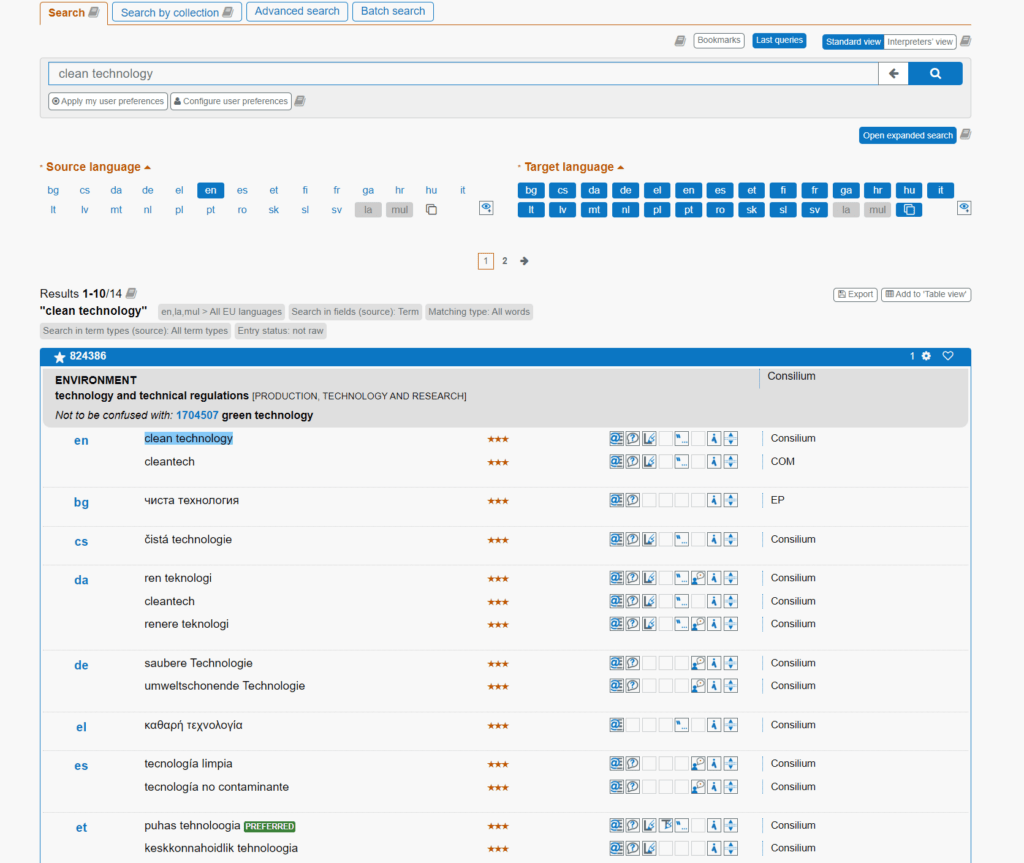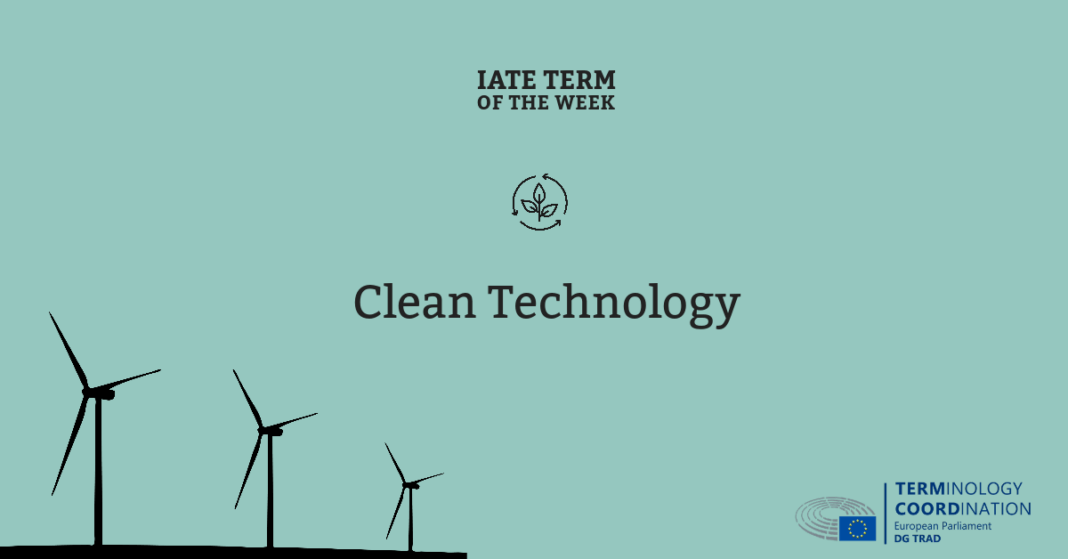Clean technologies, often referred to as cleantech, are a diverse set of innovative solutions designed to address the environmental and social challenges associated with traditional, resource-intensive technologies. These technologies play a crucial role in reducing our ecological footprint and mitigating the impacts of climate change and they are fundamental for the achievement of the goals set by the Clean energy for all Europeans package.

The pressing issues of climate change, resource depletion, and environmental degradation necessitate a swift transition to cleaner, more sustainable technologies. Traditional industries have often relied on fossil fuels and energy-intensive processes, contributing significantly to greenhouse gas emissions and pollution. Clean technologies offer a ray of hope, providing practical, environmentally friendly alternatives, such as renewable energy, energy storage, electric vehicles, green building technologies, waste management and recycling.
The adoption of clean technologies offers numerous advantages for the Member States, including:
1. Job Creation: The transition to clean technologies creates job opportunities in research, development, manufacturing, and maintenance.
2. Reduced Environmental Impact: By lowering greenhouse gas emissions, conserving resources, and minimizing pollution, clean technologies contribute to a healthier planet.
3. Energy Independence: Clean technologies reduce reliance on finite and geopolitically sensitive fossil fuel resources, enhancing energy security.
4. Long-Term Cost Savings: Many clean technologies provide long-term cost savings due to reduced energy consumption and maintenance requirements.
While clean technologies hold great promise, there are also some challenges that EU must face. High initial costs, the need for infrastructure upgrades, and policy barriers can hinder the adoption of clean technologies. However, ongoing research, government incentives, and a growing awareness of environmental issues are driving progress in this field.
The future of clean technologies appears bright. As the economies of the Member States shift towards sustainability, innovations will continue to emerge, making clean technologies even more accessible and cost-effective. It is crucial that governments, businesses, and individuals embrace these technologies and work collaboratively to secure a cleaner, greener future.
Clean technologies are at the forefront of the EU’s effort to address climate change and environmental degradation. These innovative solutions are transforming industries, promoting sustainability, and driving economic growth. By supporting clean technologies and adopting eco-friendly practices, we can ensure a brighter, more sustainable future for generations to come.
Bibliography
European Commission. (2019). Clean energy for all Europeans package. https://energy.ec.europa.eu/topics/energy-strategy/clean-energy-all-europeans-package_en. (Accessed: 16 October 2023).
European Commission (2023) Clean energy competitiveness. Available at: https://energy.ec.europa.eu/topics/research-and-technology/clean-energy-competitiveness_en. (Accessed: 16 October 2023).
European Investment Bank (2023) Opportunity for reinvention. Available at: https://www.eib.org/en/stories/eib-forum-clean-technology-crises
McKinsey Sustainability (2023). Five key action areas to put Europe’s energy transition on a more orderly. Available at: https://www.mckinsey.com/capabilities/sustainability/our-insights/five-key-action-areas-to-put-europes-energy-transition-on-a-more-orderly-path
Written by Carmen Trinado Jiménez
Born in Spain. With an academic background in Translation and Interpreting she is currently doing a PhD in Translation and Terminology of the Jewellery and Smithing Industry (University of Cordoba). During her studies, she participated in multiple debate competitions and Model of United Nations (MUN), which sparked her passion for international relations. After her bachelor’s degree, she has worked as a freelance translator and as a lecturer at the University of Extremadura and the University of Cordoba. Among her hobbies, she enjoys reading, weight lifting and painting.

